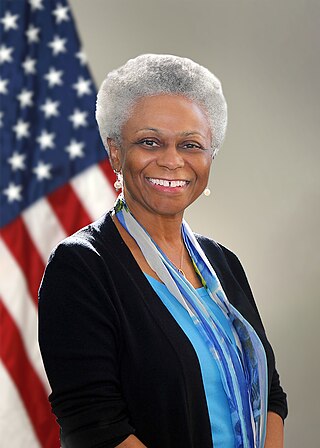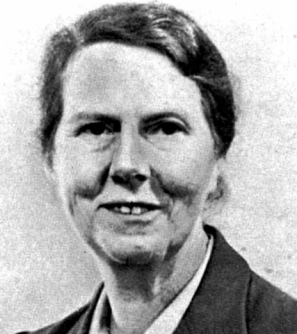
Geriatrics, or geriatric medicine, is a medical specialty focused on providing care for the unique health needs of the elderly. The term geriatrics originates from the Greek γέρων geron meaning "old man", and ιατρός iatros meaning "healer". It aims to promote health by preventing, diagnosing and treating disease in older adults. Older adults may be healthy, but they're more likely to have chronic health concerns and require more medical care. There is no defined age at which patients may be under the care of a geriatrician, or geriatric physician, a physician who specializes in the care of older people. Rather, this decision is guided by individual patient need and the caregiving structures available to them. This care may benefit those who are managing multiple chronic conditions or experiencing significant age-related complications that threaten quality of daily life. Geriatric care may be indicated if caregiving responsibilities become increasingly stressful or medically complex for family and caregivers to manage independently.
The Beers Criteria for Potentially Inappropriate Medication Use in Older Adults, commonly called the Beers List, are guidelines published by the American Geriatrics Society (AGS) for healthcare professionals to help improve the safety of prescribing medications for adults 65 years and older in all except palliative settings. They emphasize deprescribing medications that are unnecessary, which helps to reduce the problems of polypharmacy, drug interactions, and adverse drug reactions, thereby improving the risk–benefit ratio of medication regimens in at-risk people.

Gerontological nursing is the specialty of nursing pertaining to older adults. Gerontological nurses work in collaboration with older adults, their families, and communities to support healthy aging, maximum functioning, and quality of life. The term gerontological nursing, which replaced the term geriatric nursing in the 1970s, is seen as being more consistent with the specialty's broader focus on health and wellness, in addition to illness.
The American Geriatrics Society (AGS) is a non-profit professional society founded on June 11, 1942, for health care professionals practicing geriatric medicine. Among the founding physicians were Dr. Ignatz Leo Nascher, who coined the term "geriatrics", Dr. Malford W. Thewlis, who was named the first executive secretary of the Society, and Dr. Lucien Stark who was appointed the first AGS president.

Frailty or frailty syndrome refers to a state of health in which older adults gradually lose their bodies' in-built reserves and functioning. This makes them more vulnerable, less able to recover and even apparently minor events can have drastic impacts on their physical and mental health.

Basil Mackenzie, 2nd Baron Amulree,, was a British physician and leading advocate of geriatric medicine in the United Kingdom.
Geriatric medicine, as a speciality, was introduced in Egypt in 1982, and in 1984 a geriatrics and gerontology unit in Ain Shams University Faculty of Medicine was established.
Geriatric oncology is a branch of medicine that is concerned with the diagnosis and treatment of cancer in the elderly, usually defined as aged 65 and older. This fairly young but increasingly important subspecialty incorporates the special needs of the elderly into the treatment of cancer.
Diane E. Meier, an American geriatrician and palliative care specialist. In 1999, Dr. Meier founded the Center to Advance Palliative Care, a national organization devoted to increasing access to quality health care in the United States for people living with serious illness. She continues to serve as CAPC's Director Emerita and Strategic Medical Advisor. Meier is also Vice-Chair for Public Policy, Professor of Geriatrics and Palliative Medicine and Catherine Gaisman Professor of Medical Ethics at the Icahn School of Medicine at Mount Sinai Hospital in New York City. Meier was founder and Director of the Hertzberg Palliative Care Institute at the Icahn School of Medicine in New York City from 1997 to 2011.
Teresa Thomas "Terry" Fulmer, is the current president of The John A. Hartford Foundation. Earlier positions include distinguished professor and dean of the Bouvé College of Health Sciences at Northeastern University and dean of the College of Nursing at New York University. She is known for her extensive research in geriatrics and elder abuse. She has received funding from the National Institute on Aging, the National Institute of Nursing Research and other foundations for her research regarding elder abuse.
The Estonian Association of Gerontology and Geriatrics (EGGA) is an association of Estonian professionals who work with the elderly, established in 1997.
The Eldercare Workforce Alliance (EWA), a project of the Tides Center, is a coalition of 35 US national organizations that came together to focus on short- and long-term healthcare workforce issues relating to older adults. The Alliance helped pass the 2018 Raise Family Caregivers Act, supports ongoing funding for the Title VII Geriatrics Workforce Enhancement Program, and advocates for including elder care in government and professional policies, including related questions of educating and maintaining the labor force such care requires.
The John A. Hartford Foundation is a private United States–based philanthropy whose current mission is to improve the care of older adults. For many years, it made grants for research and education in geriatric medicine, nursing and social work. It now focuses on three priority areas: creating age-friendly health systems, supporting family caregivers and improving serious illness, and end-of-life care.

Alexandre Kalache is a medical epidemiologist specializing in the study of aging. Since 2012 he is President of the International Longevity Centre-Brazil and since 2015 co-President of the Global Alliance of International Longevity Centres (ILC-GA). He formerly directed the World Health Organization global ageing programme at its Geneva headquarters following an academic career largely at the Universities of London and Oxford in the United Kingdom. Kalache has researched, written and spoken in the field of ageing issues as an academic, an international civil servant and an advocate.
David Oliver is a British physician specialising in the geriatric medicine and acute general internal medicine. He was President of the British Geriatrics Society from 2014 to 2016. He is Visiting Professor of Medicine for Older People in the School of Community and Health Sciences at City University London and a King's Fund Senior Visiting Fellow. He was formerly the UK Department of Health National Clinical Director for Older People's Services from 2009 to 2013. He is a researcher, writer, teacher and lecturer on services for older people and a regular blogger, columnist and media commentator. He was elected as Clinical Vice President of the Royal College of Physicians, London. In April 2022 he was elected as president of the Royal College of Physicians but withdrew in July 2022 after he had contracted Covid 19 and "no longer felt able to do it justice".
Vallalarpuram Sennimalai Natarajan is an Indian geriatric physician, considered by many as the Father of Geriatric Medicine in India and known to be the first Indian Professor in the discipline. He was honored by the Government of India, in 2012, with the fourth highest Indian civilian award of Padma Shri.

Marie A. Bernard, M.D. was the Chief Officer for Scientific Workforce Diversity at the National Institutes of Health (NIH). Prior to this, she was the deputy director of the National Institute on Aging at the NIH, as well as the institutes senior geriatrician, where she oversaw approximately $3.1 billion in research focused on aging and Alzheimer's disease. Bernard served as a co-chair of the Advisory Committee to the NIH Director Working Group on Diversity, the NIH Steering Committee Working Group on DEIA, and the NIH UNITE initiative launched in 2021 to identify and address any structural racism that may exist within NIH and throughout the biomedical and behavioral workforce. She also co-led the development of the Fiscal Years 2023 – 2027 NIH-wide Strategic Plan for Diversity, Equity, Inclusion, and Accessibility (DEIA) and worked on its implementation.

Marjory Winsome Warren is one of the first geriatricians and considered the mother of modern geriatric medicine.
Comprehensive geriatric assessment (CGA) is a process used by healthcare practitioners to assess the status of older people who might have frailty in order to optimize their subsequent management. These people often have complex, multiple and interdependent problems (multimorbidity) which make their care more challenging than in younger people, or those with just one medical problem. CGA is the core work of specialists in the care of older people, although many other health care practitioners either have not heard of it, or are not aware of what it actually is.

Rose Anne Kenny is an Irish geriatrician. She is the Regius Professor of Physic and a professor of medical gerontology at Trinity College Dublin (TCD), director of the Falls and Black-out Unit at St James's Hospital in Dublin, director of the Mercer's Institute for Successful Ageing and founding principal investigator for The Irish Longitudinal Study on Ageing (TILDA). She was admitted in 2014 to the Royal Irish Academy in recognition of academic excellence and achievement. Kenny is a fellow of Trinity College Dublin and of the Royal Colleges of Physicians of Ireland, London and Edinburgh.






